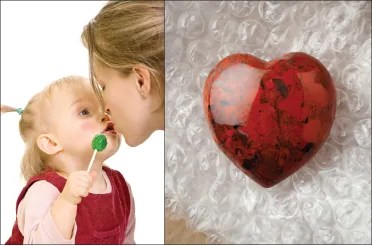From the spring summer 2013 issue of Special Parent magazine, a selection of thought-provoking, laugh-inducing, or plain interesting thoughts from the web and the world of special parenting.
|
|
| “Those who know me and have heard my story know that I credit my parents for my success. If it weren’t for them bending over backwards to get me the support and treatment I needed, not only would I not be the person I am now, but I most likely wouldn’t have survived those trying years of desolation.” —Lisa Lambert, who grew up with severe mental illness and is the mother of two sons, one of whom showed signs of significant mental health needs by first grade; she is an “unabashed advocate” and director of Parent/Professional Advocacy League, a family-run, grassroots nonprofit |
| “Let’s try to look in the eyes of every child we encounter, treat, teach or parent, whatever their diagnosis or label, and recognize each child’s uniqueness, each child’s inimitable soul.” —Priscilla Gilman (@priscillagilman), author of “The Anti-Romantic Child: A Memoir of Unexpected Joy,” in a New York Times op-ed piece entitled “Don’t Blame Autism for Newtown”; NYC native Gilman speaks frequently about parenting, education, and the arts, and is a scholar/facilitator for the New York Council for the Humanities; she lives in New York City with her family |
| My Gain Is Whose Pain? “In most instances, budgets don’t increase—they shift. So you may get excited that they have added yet another class of individuals to the ever- growing list of those with disabilities, but keep in mind, the pot doesn’t get any bigger, the same resources simply get spread a little thinner.” —Valerie Strohl (@unitedmedianow), a mom “intent on changing the world for her daughter with Down syndrome,” in a blog post entitled “For Special Needs Advocates: A Guide On Reaching Out To Politicians” at friendshipcircle.org/blog |
|
“Simplicity is a biological need of the ADHD brain.” —Susan Kruger, M.Ed., certified teacher and author of “SOAR Study Skills: A Simple and Efficient System for Earning Better Grades in Less Time” (studyskills.com/adhd), in the winter 2012 issue of “ADDitude” |






















